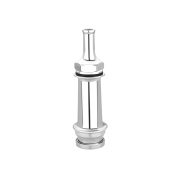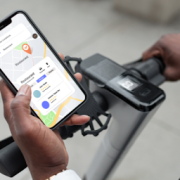Experiential marketing agencies specialize in creating immersive and engaging brand experiences that connect with consumers on a deeper level.
Experiential marketing Agencies Las Vegas employs various tactics, from event activations to guerrilla marketing, to create memorable and impactful campaigns for their clients.
In this guide, we’ll explore the world of Experiential marketing agencies, including what they do, how they work, and some of the top agencies in the industry.
Brief Overview of Experiential marketing
Experiential marketing can take many forms, including:
- Event activations: These are live events or experiences that bring a brand to life in a tangible way. Examples include pop-up shops, product launches, and interactive exhibits.
- Guerrilla marketing: This is a non-traditional marketing approach that uses unconventional tactics to generate buzz and awareness for a brand. Examples include flash mobs, street art, and viral campaigns.
- Branded content: These involve creating original content designed to entertain, educate, or inspire consumers while promoting a brand. Examples include branded videos, podcasts, and social media campaigns.
- Influencer marketing: This strategy involves partnering with social media influencers or celebrities to promote a brand or product to their followers.
Establishment of Experiential marketing Agencies Las Vegas
- Define Your Niche: The first step in setting up an Experiential marketing Agengency is to define your niche. Determine what kind of Experiential marketing you want to focus on, such as experiential marketing, influencer marketing, or guerrilla marketing. Identify the industry you want to serve and determine what sets your agency apart.
- Create a Business Plan: Once you have defined your niche, it’s time to create a business plan. Your business plan should include your agency’s mission and vision, target market, services offered, pricing strategy, and financial projections. It will help you stay on track and focused on your goals.
- Build Your Team: Your team will be the backbone of your Experiential marketing agency, so building a talented team of professionals is essential. You’ll need creative directors, project managers, designers, copywriters, and marketing strategists. You can hire full-time employees, freelancers, or a combination of both.
- Establish The Brand: Your brand identity is how your clients and prospects will perceive your Experiential marketing agency. Establish your brand by creating a logo, designing a website, and developing a unique voice and tone for your agency. Your branding should reflect your agency’s values, mission, and vision.
- Develop Your Services: You should align with your niche and target market. Determine what Experiential marketing campaigns you want to offer, such as pop-up events, Influencer Marketing, or experiential marketing. Develop your services with your team, considering your client’s needs and preferences.
- Build Your Network: It is crucial in the marketing industry. Attend marketing conferences, seminars, and events to meet other professionals and potential clients. Join industry associations and organizations to stay up-to-date with the latest trends and best practices in Experiential marketing.
- Acquire Clients: It is the lifeblood of any marketing agency. Develop a marketing strategy that targets your ideal clients. Use social media, email marketing, and paid advertising to reach prospects. Leverage your network to get referrals and recommendations.
- Measure Results: Measuring the results of your Experiential marketing campaigns is crucial to your agency’s success. Use analytics tools to track your campaigns’ performance and determine what’s working and what’s not. Use this information to improve your services and provide better client results.
Functioning of Experiential marketing agencies?
Experiential marketing agencies typically work with clients to create customized campaigns tailored to their specific goals and objectives. This process typically involves several key steps:
- Discovery: The agency works with clients to understand their brand, target audience, and marketing objectives. This may involve conducting research and analysis to identify key insights and opportunities.
- Ideation: The agency brainstorms ideas and concepts for the campaign, using its creativity and expertise to develop innovative and impactful strategies.
- Planning: Once the ideas have been selected, the agency creates a detailed campaign plan. This may involve selecting venues, creating promotional materials, and coordinating logistics.
- Execution: The agency manages the implementation of the campaign, overseeing all aspects of the experience to ensure that it meets the client’s goals and objectives.
Conclusion
Experiential marketing focuses on creating immersive and engaging brand experiences that connect with consumers on a deeper level.
The goal is to create memorable experiences that generate positive emotions and associations with a brand, leading to increased brand loyalty and advocacy.
Establishing an Experiential marketing agency requires careful planning, hard work, and dedication. Follow these steps to build a successful agency that delivers results for your clients and grows your business.
Read More: Discovering Experiential Marketing Agencies in Los Angeles









Comments